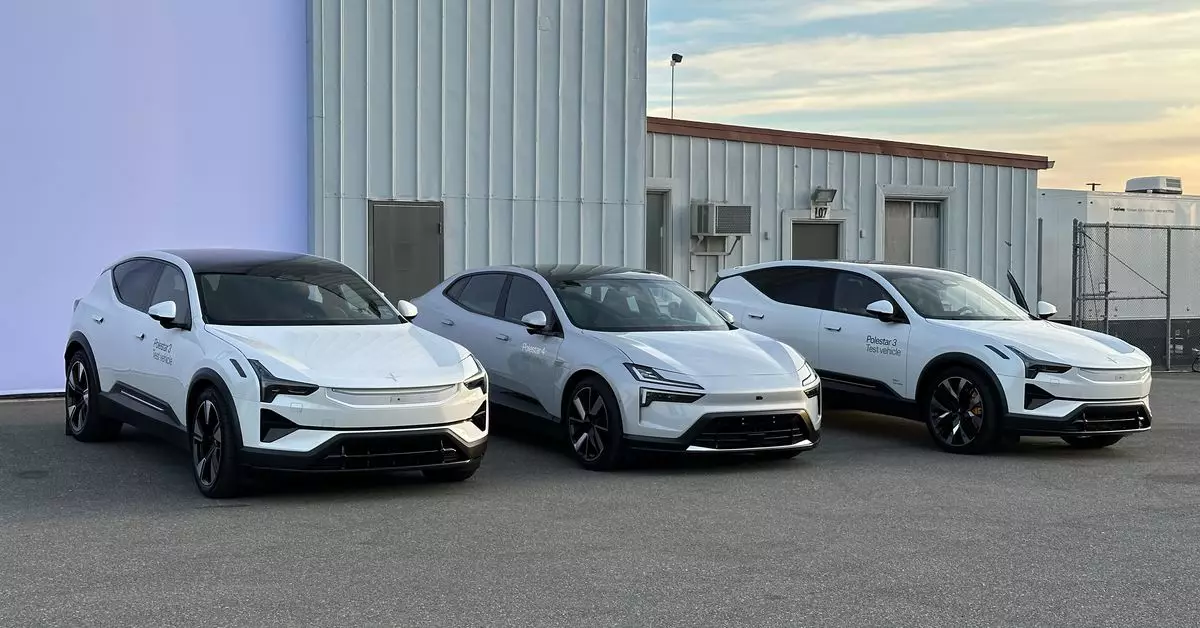Recent developments in the United States have dramatically altered the landscape of the automotive industry, particularly with respect to foreign involvement. The Biden administration has enacted a new rule prohibiting the sale or import of connected vehicle software from nations deemed as security threats, notably China and Russia. This regulatory shift raises a multitude of questions regarding the future of automotive production and global trade, affecting not only major manufacturers like Ford and General Motors but also smaller entities and tech firms involved in the automotive sector, such as Waymo and Polestar.
This new rule targets aspects of vehicle connectivity that pertain to data collection and cybersecurity. It affects any technology in vehicles that connects to external networks—cellular and satellite components, Bluetooth, and Wi-Fi. The intention is to thwart potential espionage tactics that could exploit these technologies to gather sensitive information about U.S. citizens and national infrastructure. For Secretary of Commerce Gina Raimondo, the stakes are high: “It doesn’t take much imagination to understand how a foreign adversary with access to this information could pose a serious risk to both our national security and the privacy of U.S. citizens.”
The rule comes into effect in phases: the prohibition on problematic software will apply to vehicles produced for model year 2027, while hardware exclusions will kick in for 2030 models. Curiously, vehicles exceeding 10,000 pounds are exempt, thereby allowing companies like BYD to maintain their electric bus operations in California, an indication of the complexities and nuances involved in regulating this multifaceted industry.
Mixed reactions can be seen throughout the automotive sector. Industry leaders and advocacy groups, such as the Alliance for Automotive Innovation, recognize the value of safeguarding national security yet warn that the broad implications of such regulations could severely disrupt an already complex global supply chain. The auto industry sought an extension for the proposal, hoping to postpone implementation until a new administration could consider it, but their efforts were futile.
Smaller manufacturers also voiced concerns regarding the disproportionate impact of these bans. Polestar, for example, has articulated that the regulations could essentially bar it from engaging in the U.S. market, in direct conflict with its operations in South Carolina. Such reactions highlight the precarious balance between safeguarding security and promoting healthy competition within the automotive industry.
The timing of this rule cannot be understated. China has ascended to the forefront of global automotive production, claiming the title of the world’s largest auto exporter. This rise has alarmed U.S. officials who perceive it as a direct threat to American interests and autonomy within the market. As automotive technologies advance and become increasingly intertwined with broader cybersecurity arenas, the apprehension surrounding foreign influence grows stronger.
Furthermore, this initiative fits within a larger framework of trade restrictions that have increasingly confronted China. The White House categorizes China’s software access as a “significant threat,” alluding to the potential for nefarious activities that could compromise the integrity of American vehicle systems and user data.
The rule also extends beyond traditional automotive manufacturers, reaching into the realm of technology firms that depend on foreign products for their innovations. For example, Waymo’s strategy relies on utilizing vehicles from Geely’s Zeekr for its robotaxi fleet. Despite implementing countermeasures to ensure that no pre-installed telematics systems enter their vehicles, the potential consequences of this rule could hamper Waymo’s plans and consequently affect the autonomous vehicle landscape.
Such regulatory constraints serve as a reminder of the potential tensions that exist when technology, mobility, and national security collide. The landscape is rapidly evolving, with tech companies navigating difficult waters as they strive to develop autonomous solutions while contending with a hostile regulatory environment.
As the automotive industry wrestles with these new regulations, the implications of this regulatory decision will unfold over the coming years. The challenge ahead will be fostering innovation and competition while ensuring the protection of national security. With considerable pushback from manufacturers and an increasingly complex global environment, it remains to be seen how these regulations will reshape the contours of the automotive industry in America. Ultimately, a delicate equilibrium must be struck between safeguarding innovative prowess and maintaining security dynamics to chart a sustainable path forward.


Leave a Reply